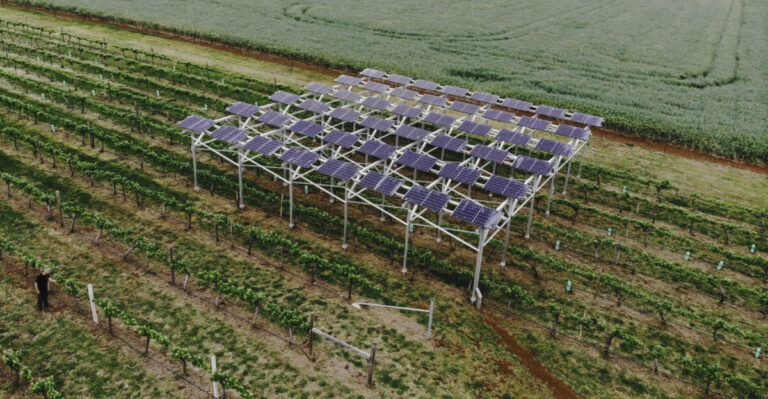Australian renewable energy company Greenwood has installed 48 solar panels at the University of Melbourne’s Dookie Campus vineyard to support research into how agricultural voltaics impacts crop yields.
Greenwoodan Australian solar, procurement and construction (EPC) company, has installed 48 solar panels at the University of Melbourne’s Dookie Campus vineyard, 216 km northeast of Melbourne.
The 20 kW solar system features 440 W panels, covering approximately 270 m² of vineyard. The Dookie solar project, developed in partnership with Greenwood and Victoria-based engineering firm Enhar, aims to study the benefits of integrating PV with viticulture.
The Dookie research, funded by AgriFutures, promises to deliver insights for the agriculture and energy sectors in the context of Australia’s distinctive environmental conditions.
Greenwood’s head of education, Veli Markovic, said the Dookie system is just the start of Australia’s agricultural movement.
“We are seeing a phenomenal increase in the number of partners looking to deliver these projects and the hope is that we can use our experiences delivering these projects to train our industry peers through the Greenwood Academy,” said Markovic. pv magazine. “Passing on knowledge so that they can identify opportunities and realize projects, where agrivoltaic solar energy is an absolute no-brainer.”
Sabine Tausz-Posch, senior lecturer in agricultural and food sciences at the University of Melbourne, said the university is using the agrivoltaic facility as a model for how agriculture can adapt to climate change.
“For me, the most exciting aspect of this project is that we are combining a crop production system with electricity production on the same piece of land, by increasing land use efficiency,” said Tausz-Posch. “At the same time, it also means that we might be helping our crops cope with those changing environments, protecting them from certain climate stresses and perhaps saving some water at the same time, which is an underlying hypothesis underlying agricultural voltaics research. we may even help make the panels more efficient.”
Greenwood said agrivoltaic energy could enable more sustainable land use in Australia and, in the right scenarios, is a no-brainer for farmers, energy producers and the country’s agriculture and energy industries.
The system at Dookie is now one of two officially recognized agrivoltaic projects in Australia, the other being at Tatura Smart Farm, also in Victoria, where agrivoltaic research explores the simultaneous use of land for energy and crop production by testing the configuration of solar panels. above a high-density pear orchard.
This content is copyrighted and may not be reused. If you would like to collaborate with us and reuse some of our content, please contact: editors@pv-magazine.com.
Popular content



